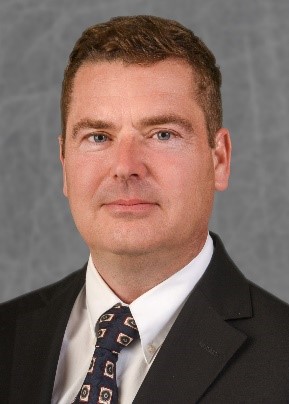 Congratulations to David Kropaczek, Director for the U.S. Department of Energy innovation hub – Consortium for Advanced Simulation of Light Water Reactors (CASL). He has been elected to the highest ranks within the American Nuclear Society, ANS Fellow. It serves as recognition for his significant and continual contributions to the advancement of nuclear science and technology.
Congratulations to David Kropaczek, Director for the U.S. Department of Energy innovation hub – Consortium for Advanced Simulation of Light Water Reactors (CASL). He has been elected to the highest ranks within the American Nuclear Society, ANS Fellow. It serves as recognition for his significant and continual contributions to the advancement of nuclear science and technology.
Dr. Kropaczek has over 27 years of experience in the nuclear industry with areas of expertise that include, fuel cycle and plant optimization, computational reactor physics and thermal-hydraulics, and numerical algorithm development.
Prior to joining ORNL in 2018 as CASL director, he served as CASL chief scientist and the Duke Energy Distinguished Professor in Nuclear Engineering at North Carolina State University, one of CASL’s founding partners. And continues as an adjunct faculty member. Formerly President and CEO of Studsvik Scanpower, the nuclear software division of Studsvik AB. His positions have involved research, product development, and management including,
- 9 years with General Electric (GE) Global Nuclear Fuel, developing methods and software for boiling water reactor (BWR) fuel technology.
- 12 years with Studsvik Scanpower, developing methods for real-time kinetics simulation and multi-cycle optimization; and,
- 3 years in Westinghouse Fuels, with a focus on core design and monitoring applications.
He spent 3 years as a research assistant professor at NC State working with students and R&D projects sponsored through the Electric Power Research Center. He holds a Bachelor of Science (BS) degree in Engineering Science from New Jersey Institute of Technology as well as a Master of Nuclear Engineering (MNE) and PhD in Nuclear Engineering from NC State University.
ANS is a professional organization of scientists, engineers, and other professionals devoted to the peaceful applications of nuclear science and technology. Its more than 10,000 members, from 40+ countries, come from diverse technical disciplines ranging from physics and nuclear safety to operations and power, and from across the full spectrum of the national and international enterprise, including government, academia, research laboratories, and private industry. Making it all succeed are a Board of Directors, 20 standing committees, 19 Professional Divisions, 41 Local Sections, 58 Student Sections, liaison agreements with more than 30 non-U.S. nuclear societies, and a headquarters staff.
